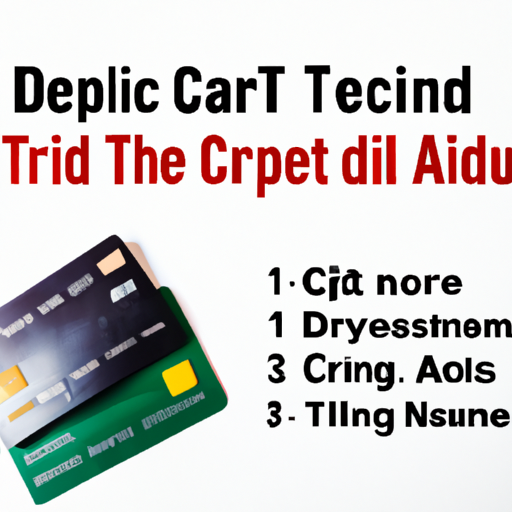Tips for Managing Credit Card Debt

Tips for Managing Credit Card Debt
Introduction
Dealing with credit card debt can be overwhelming and stressful. The burden of high-interest rates and mounting balances can feel like a never-ending cycle. However, with the right strategies and disciplined financial habits, it is possible to manage credit card debt effectively and regain control of your finances. In this article, we will provide you with valuable tips and techniques to help you tackle credit card debt and pave the way to financial freedom.
1. Create a Budget
The first step towards managing credit card debt is establishing a comprehensive budget. Identify your income sources and list all your expenses, including credit card payments. Prioritize your essential expenses and cut down on discretionary spending. Allocating a specific amount to credit card payments each month will help you stay on track without accumulating additional debt.
2. Pay More than the Minimum
While making minimum payments on your credit cards may seem like a convenient option, it can significantly prolong your debt repayment journey. Aim to pay more than the minimum amount required, even if it means sacrificing some luxuries. By paying more, you reduce the outstanding balance faster and save money on interest charges in the long run.
3. Prioritize High-Interest Debts
If you have multiple credit cards, focus on paying off the ones with the highest interest rates first. While making minimum payments on other cards, channel all your additional funds towards the highest interest debt. Once you have cleared that balance, move on to the next card. This strategy, known as the “debt avalanche method,” saves you money on interest payments and accelerates your debt repayment progress.
4. Negotiate Lower Interest Rates
Reach out to your credit card providers and try negotiating lower interest rates. Explain your financial situation and demonstrate your commitment to paying off your debts. Despite not guaranteeing success, many credit card companies are willing to reduce interest rates for customers facing financial hardship. Even a slight reduction can make a significant difference in saving you money on interest charges.
5. Consider Debt Consolidation
If you find it challenging to manage multiple credit card payments, consolidating your debts into a single loan or credit card may be a viable option. Debt consolidation simplifies your repayment process by combining all your balances into one, usually with a lower interest rate. However, carefully evaluate the terms and fees associated with debt consolidation before making a decision.
6. Avoid Using Credit Cards Temporarily
To prevent further accumulation of debt, consider temporarily suspending the use of credit cards. Stick to cash or debit card payments to avoid the temptation of overspending. By relying on your available funds, you can focus on paying off existing credit card debts and develop healthier spending habits in the long run.
7. Seek Professional Help
If you feel overwhelmed or unable to manage your credit card debt on your own, it may be beneficial to seek professional assistance. Credit counseling agencies can help you create a personalized debt management plan, negotiate with creditors, and provide guidance on budgeting and financial education. Their expertise can offer you valuable insights and support in your journey towards debt recovery.
Conclusion
Credit card debt doesn’t have to control your life. By following these tips and being proactive, you can successfully manage your credit card debts and move towards a more financially stable future. Setting up a budget, paying more than the minimum, prioritizing high-interest debts, negotiating interest rates, considering debt consolidation, temporarily avoiding credit cards, and seeking professional help are all steps you can take to regain control over your financial situation. Remember, with discipline, patience, and perseverance, you can eliminate credit card debt and pave the way for a brighter financial future.





